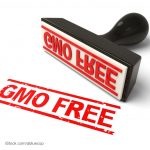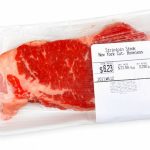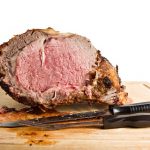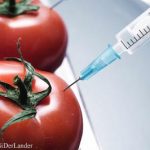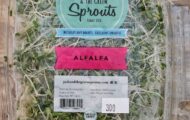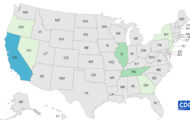A study conducted for the U.K. Food Standards Agency has found that GMO labeling would increase a family's food costs by 33 cents to $5.58 a year. And a study by Consumers Union reviewed research on GMO labeling and found the annual median cost per person would be $2.30. Food & Water Watch says that Americans deserve to know what is in the food they buy. Groups like the Corn Refiners Association have claimed that Americans will spend more than $1,000 per year on groceries because of the costs associated with adding GMO labeling to products. The CRA study number is so high because they include increases in distribution costs and the costs of switching ingredients in processed foods to organic or non-GMO, even though labeling laws set to go into effect do not have those … [Read more...]
DARK Act Defeated in Senate
H.R. 1599, ironically labeled the "Safe and Accurate Food Labeling Act of 2015," otherwise known as the "Deny Americans the Right to Know" or DARK Act, was defeated in the U.S. Senate last week as S.R. 2621. Senators did not have enough votes for cloture, and the bill faced bi-partisan opposition. The bill would have preempted states from requiring labeling of foods that contain genetically modified organisms (GMOs). Food companies developed the legislation. The bill would also have continued the voluntary labeling system that lets companies use 1-88 numbers, URLs, QR codes, and social media to tell consumers about the GMOs they use in their products. It would have allowed the USDA to determine what GMO information is provided through the system. And it would have made it harder for … [Read more...]
CFA Statement on House COOL Vote
Chris Waldrop, director of the Food Policy Institute at the Consumer Federation of America released a statement about the house vote on country of origin labeling (COOL). Last week, the House voted to repeal COOL, meaning that labels on meat, pork, and chicken would no longer have to state where the food came from. He said in a statement, "yesterday the House voted to deny American consumers basic information about where their food comes from. In supporting a repeal of country of origin labeling for meat, pork, and chicken, Congress bowed to overblown threats of retaliation from Canada and Mexico and took action prematurely before the case at the WTO was fully settled." The World Trade Organization has repeatedly ruled against the United States on this matter. Canada and Mexico … [Read more...]
WTO Rules Against U.S. on COOL. Again.
The World Trade Organization has ruled against the United States appeal on an October 2014 ruling delcaring country-of-origin labeling (COOL) in violation of international trade law. U.S. lawmakers want to repeal the legislation. The report issued May 18, 2015 is the fourth and final ruling on COOL. The legislation requires that all livestock from Mexico, Canada, and the United States is separated from birth and identified as to origin on the label. Canada and Mexico are against COOL, saying that it reduces the value of their exports. The ruling lets Canada and Mexico impose retaliatory tariffs on U.S. goods this summer that could reach into the billions of dollars. Supporters of COOL want to work with Congress to make changes with the legislation to bring it into compliance. Most … [Read more...]
USDA Says COOL Doesn’t Benefit Consumers
Country-of-origin labeling (COOL) doesn't provide benefits to consumers, according to the USDA's chief economist. A report from the USDA was sent to Congress last Friday, May 1, 2015. The report was mandated by the 2014 Farm Bill. The report states that "In terms of consumers, USDA's regulatory impact analyses concluded that while there is evidence of consumer interest in COOL information, measurable economic benefits from mandatory COOL would be small. USDA's regulatory impact analyses also found little evidence that consumers are likely to increase their purchased of food items bearing U.S.-origin labels." However, the report did recognize the interest in labeling based on the consumer's right to know what they are purchasing. The World Trade Organization has ruled against the … [Read more...]
Vilsack Commits to Exempting Mechanically Tenderized Beef Regulation
According to Congresswoman Rosa DeLauro (D-CT), USDA Secretary Tom Vilsack said last week in a congressional hearing that he may suspend the Uniform Labeling Regulation so that the rule for labeling mechanically tenderized beef (MTB) products can be issued. Mechanically tenderized beef is whole cuts of beef that have been pierced with fine blades or needles to break up the connective tissue in the meat. This action introduces bacteria to the interior of the cut, and poses a food safety hazard if the meat is not cooked to 160°F. The MTB labeling rule has been pending for 10 years. Meanwhile, there have been food poisoning outbreaks linked to this product. Two outbreaks, one in 2003 and the other in 2009, caused 174 illnesses and killed one person. And remember that these numbers are only … [Read more...]
Coalition Supporting COOL Change Sends Letter to Congress
Last week a U.S. District Court of Appeals refused to rehear the country-of-origin (COOL) labeling dispute between the United States and the World Trade Organization, effectively making COOL the law of the land. After this decision, stakeholders known as COOL Reform Coalition sent a letter to members of Congress asking them to "immediately authorize and direct the Secretary of Agriculture to rescind elements of COOL that have been deemed to be non-compliant with international trade obligations." That coalition is comprised of organizations such as Hormel Foods, ConAgra, Cargill, National Beef Packing Company, Smithfield Foods, Abbott, Anheuser-Busch, Archer Daniels Midland, Nestle USA, Nestle Waters North America, Unilever, Tyson Foods, and the North American Meat Association. They are … [Read more...]
Canada Mandates Labeling Mechanically Tenderized Beef
The government of Canada is mandating labeling of mechanically tenderized beef. All MTB products sold in Canada must be clearly labeled as "mechanically tenderized" and include instructions for safe cooking. These products have been tenderized by piercing with needles or blades. This process introduces bacteria into the center of the cut of meat, and means the meat is not safe to consume unless it is cooked well done. Several outbreaks in both Canada and the United States have been linked to undercooked mechanically tenderized beef. An E. coli O157:H7 outbreak in Canada in 2012 was linked to mechanically tenderized beef produced by XL Foods; at least 10 people were sickened. In the United States, there were at least five outbreaks of E. coli O157:H7 linked to mechanically tenderized … [Read more...]
U.S. Appeals Court Upholds COOL Labeling Rule
The full U.S. District Court of Appeals rejected the challenge to the USDA's meat labeling rules filed by the meat industry. Those rules are known as country of origin labeling (COOL). In addition to opposing labeling for economic reasons, the meat industry believes they are being forced to issue statements against their will. A three-panel judge ruled against the meat industry in March 2014 and requested a full court review of the meat industry's First Amendment claims. The court decided that regulations satisfy a government interest to protect consumers. The court stated that Congress has passed mandates for labeling for more than 100 years. The meat industry claims that these labels could drive meat producers out of business if consumers don't want to buy meat that was raised or … [Read more...]
Vermont Set to Enact Statewide GE Food Labeling Bill
The Vermont House voted to accept the Senate version of the GE labeling bill last week. Governor Shumlin is expected to sign the bill. All foods for sale in Vermont that are made with GE or GMO ingredients will have to carry a label effective July 1, 2016. The Center for Food Safety's executive director Andrew Kimbrell said, "this is an historic day for the people's right to know. It is now very clear that federal labeling of genetically engineered foods is going to happen in the foreseeable future. Should the industry try to challenge this law, Center for Food Safety will be there to help defend it and we are confident that it would survive any such challenge." While Vermont is not the first state to pass such a bill, it is the first bill that stands alone. No other states need to … [Read more...]
